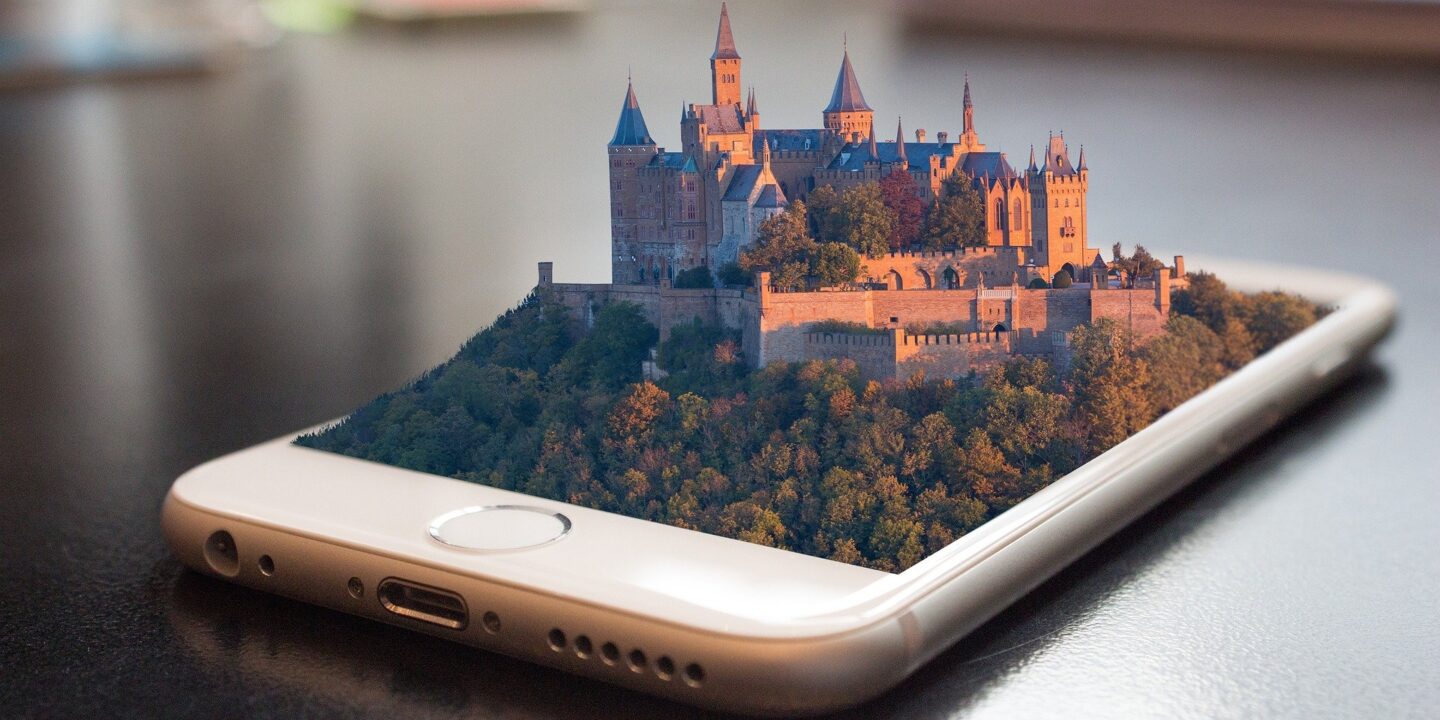
More comfortable online than out partying, post-Millennials are safer, physically, than adolescents have ever been. But they’re on the brink of a mental-health crisis.
I’ve been researching generational differences for 25 years, starting when I was a 22-year-old doctoral student in psychology. Typically, the characteristics that come to define a generation appear gradually, and along a continuum. Beliefs and behaviors that were already rising simply continue to do so. Millennials, for instance, are a highly individualistic generation, but individualism had been increasing since the Baby Boomers turned on, tuned in, and dropped out. I had grown accustomed to line graphs of trends that looked like modest hills and valleys. Then I began studying Athena’s generation.
Around 2012, I noticed abrupt shifts in teen behaviors and emotional states. The gentle slopes of the line graphs became steep mountains and sheer cliffs, and many of the distinctive characteristics of the Millennial generation began to disappear. In all my analyses of generational data—some reaching back to the 1930s—I had never seen anything like it.
At first I presumed these might be blips, but the trends persisted, across several years and a series of national surveys. The changes weren’t just in degree, but in kind. The biggest difference between the Millennials and their predecessors was in how they viewed the world; teens today differ from the Millennials not just in their views but in how they spend their time. The experiences they have every day are radically different from those of the generation that came of age just a few years before them.
What happened in 2012 to cause such dramatic shifts in behavior? It was after the Great Recession, which officially lasted from 2007 to 2009 and had a starker effect on Millennials trying to find a place in a sputtering economy. But it was exactly the moment when the proportion of Americans who owned a smartphone surpassed 50 percent.
The more I pored over yearly surveys of teen attitudes and behaviors, and the more I talked with young people like Athena, the clearer it became that theirs is a generation shaped by the smartphone and by the concomitant rise of social media. I call them iGen. Born between 1995 and 2012, members of this generation are growing up with smartphones, have an Instagram account before they start high school, and do not remember a time before the internet. The Millennials grew up with the web as well, but it wasn’t ever-present in their lives, at hand at all times, day and night. iGen’s oldest members were early adolescents when the iPhone was introduced, in 2007, and high-school students when the iPad entered the scene, in 2010. A 2017 survey of more than 5,000 American teens found that three out of four owned an iPhone.
The advent of the smartphone and its cousin the tablet was followed quickly by hand-wringing about the deleterious effects of “screen time.” But the impact of these devices has not been fully appreciated, and goes far beyond the usual concerns about curtailed attention spans. The arrival of the smartphone has radically changed every aspect of teenagers’ lives, from the nature of their social interactions to their mental health. These changes have affected young people in every corner of the nation and in every type of household. The trends appear among teens poor and rich; of every ethnic background; in cities, suburbs, and small towns. Where there are cell towers, there are teens living their lives on their smartphone.
Psychologically, however, they are more vulnerable than Millennials were: Rates of teen depression and suicide have skyrocketed since 2011. It’s not an exaggeration to describe iGen as being on the brink of the worst mental-health crisis in decades. Much of this deterioration can be traced to their phones.
Even when a seismic event—a war, a technological leap, a free concert in the mud—plays an outsize role in shaping a group of young people, no single factor ever defines a generation. Parenting styles continue to change, as do school curricula and culture, and these things matter. But the twin rise of the smartphone and social media has caused an earthquake of a magnitude we’ve not seen in a very long time, if ever. There is compelling evidence that the devices we’ve placed in young people’s hands are having profound effects on their lives—and making them seriously unhappy.
n the early 1970s, the photographer Bill Yates shot a series of portraits at the Sweetheart Roller Skating Rink in Tampa, Florida. In one, a shirtless teen stands with a large bottle of peppermint schnapps stuck in the waistband of his jeans. In another, a boy who looks no older than 12 poses with a cigarette in his mouth. The rink was a place where kids could get away from their parents and inhabit a world of their own, a world where they could drink, smoke, and make out in the backs of their cars. In stark black-and-white, the adolescent Boomers gaze at Yates’s camera with the self-confidence born of making your own choices—even if, perhaps especially if, your parents wouldn’t think they were the right ones.
Fifteen years later, during my own teenage years as a member of Generation X, smoking had lost some of its romance, but independence was definitely still in. My friends and I plotted to get our driver’s license as soon as we could, making DMV appointments for the day we turned 16 and using our newfound freedom to escape the confines of our suburban neighborhood. Asked by our parents, “When will you be home?,” we replied, “When do I have to be?”
But the allure of independence, so powerful to previous generations, holds less sway over today’s teens, who are less likely to leave the house without their parents. The shift is stunning: 12th-graders in 2015 were going out less often than eighth-graders did as recently as 2009.
Today’s teens are also less likely to date. The initial stage of courtship, which Gen Xers called “liking” (as in “Ooh, he likes you!”), kids now call “talking”—an ironic choice for a generation that prefers texting to actual conversation. After two teens have “talked” for a while, they might start dating. But only about 56 percent of high-school seniors in 2015 went out on dates; for Boomers and Gen Xers, the number was about 85 percent.
The decline in dating tracks with a decline in sexual activity. The drop is the sharpest for ninth-graders, among whom the number of sexually active teens has been cut by almost 40 percent since 1991. The average teen now has had sex for the first time by the spring of 11th grade, a full year later than the average Gen Xer. Fewer teens having sex has contributed to what many see as one of the most positive youth trends in recent years: The teen birth rate hit an all-time low in 2016, down 67 percent since its modern peak, in 1991.
Even driving, a symbol of adolescent freedom inscribed in American popular culture, from Rebel Without a Cause to Ferris Bueller’s Day Off, has lost its appeal for today’s teens. Nearly all Boomer high-school students had their driver’s license by the spring of their senior year; more than one in four teens today still lack one at the end of high school. For some, Mom and Dad are such good chauffeurs that there’s no urgent need to drive. “My parents drove me everywhere and never complained, so I always had rides,” a 21-year-old student in San Diego told me. “I didn’t get my license until my mom told me I had to because she could not keep driving me to school.” She finally got her license six months after her 18th birthday. In conversation after conversation, teens described getting their license as something to be nagged into by their parents—a notion that would have been unthinkable to previous generations.
Independence isn’t free—you need some money in your pocket to pay for gas, or for that bottle of schnapps. In earlier eras, kids worked in great numbers, eager to finance their freedom or prodded by their parents to learn the value of a dollar. But iGen teens aren’t working (or managing their own money) as much. In the late 1970s, 77 percent of high-school seniors worked for pay during the school year; by the mid-2010s, only 55 percent did. The number of eighth-graders who work for pay has been cut in half. These declines accelerated during the Great Recession, but teen employment has not bounced back, even though job availability has.
Of course, putting off the responsibilities of adulthood is not an iGen innovation. Gen Xers, in the 1990s, were the first to postpone the traditional markers of adulthood. Young Gen Xers were just about as likely to drive, drink alcohol, and date as young Boomers had been, and more likely to have sex and get pregnant as teens. But as they left their teenage years behind, Gen Xers married and started careers later than their Boomer predecessors had.
This page contains affiliate connections. If you click on one of the product links and then buy the item, we will receive a small commission. There is no expense to you because you will continue to pay the usual amount.
Categories
- 3D Printing
- Ai Products
- AI Vedio
- Auto Mobile Company
- Automobile Company
- Beauty & skincare
- Bike & Bicycle Accessories
- Bike Parts
- Bio Technology Company
- Books
- Business
- Business & Marketing
- Car rental site
- Car Selling site
- Cats & Dogs Pet Store
- Cheese Shop
- Clothing & Fashion
- cosmetic products
- Dental Company
- Digital Marketing
- Digital Sequrity
- Domain & Hosting
- Domain Hosting
- Domain&Hosting
- Educational & Creative Site
- Educational & Creative Subscription For Children
- Electronics
- event planner
- Eyeglasses & Eyewear
- Fashion
- Fashion accessories
- Filter Bottel for travel
- Fishing kit
- Food
- Food & Grocery
- Food Delivery Site
- Footwear & Sports Shoe
- Freelance site
- Furniture & Accessories
- Games
- Growoons
- Hair Care & Skin Care
- Health
- Health & Doctors
- Health & Supplement
- Heart Health Supplements
- Home Appliances
- Home Decor Company
- Hosting and Domain
- Hotels
- House Design Company
- Innerwear Cloths
- Jewellery & Accessories
- kids toys
- Legal Service Company
- Marketing Company
- Military Equipment Store
- Mobile Company
- Online Cheese Store
- Online consulting site
- Online courses
- Online Doctor
- Online Domiciliation Company
- Online jobs
- Online Loan Company
- Online Retail Company
- Online Security
- Online Shipping Company
- Online Shopping Site
- Online Whole Sale Place
- Packaging Supplier
- Pet care & Food
- Photography
- Repairing Workshop
- Service Company
- Shipping Company
- Shoes & Handbags
- Shopping site
- Social Security
- Software Company
- Sports Discovery
- Story Books & Textbook
- Study & Technology
- Supported Printer
- Tech
- Telecommunications
- Tooth Brushes Company
- Toys & All Accessories
- Transport Company
- Travel
- Travel & Airlines
- Travel Website Company
- Vpn
- Water Filter Company
- web hosting
- Website Building
Recent Post
Finish Line Legacy and Vision of Finish
- February 14, 2026
- 5 min read
The Vision and Engineering Philosophy Behind Dyson
- February 14, 2026
- 5 min read
Innovation at the Core of Dyson Technology
- February 14, 2026
- 5 min read









